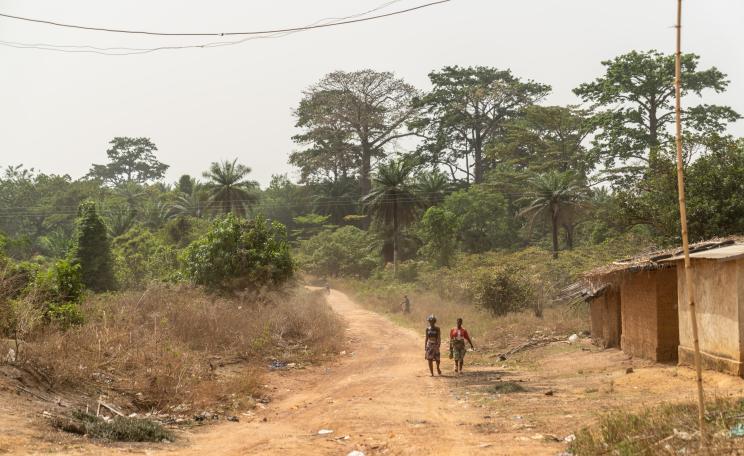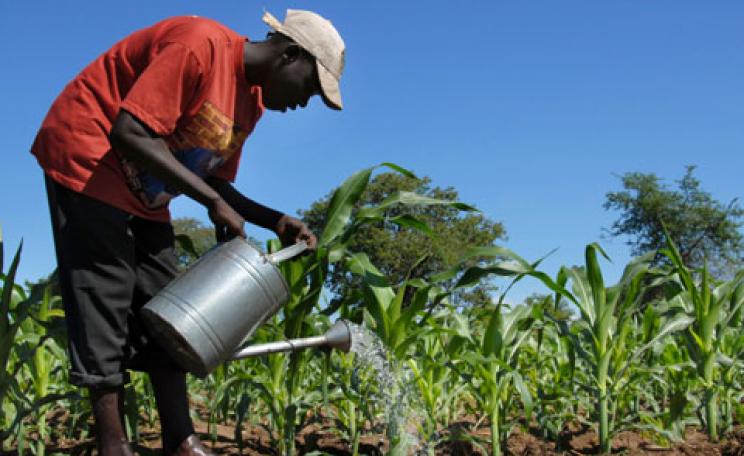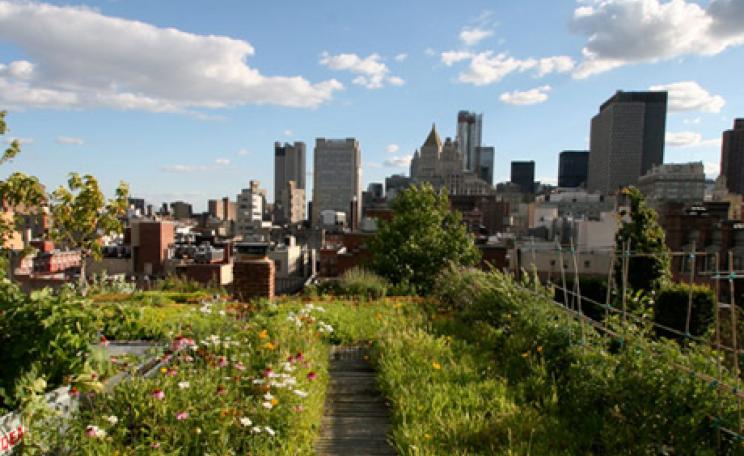Cocoa production will become increasingly difficult in the key growing regions of West Africa by 2030 because of climate change, according to a new study.
More than half the world's chocolate is made from cocoa grown by farmers in Ghana and Cote d'Ivoire.
But with average temperatures predicted to increase in the region by more than 1C by 2030 and 2C by 2050, many of the existing cocoa-growing areas will become significantly less suitable.
In both countries cocoa makes up a significant part of the economy - 7.5 per cent of GDP in Cote d'Ivoire and 3.4 per cent of GDP in Ghana.
For the cocoa farmers themselves the changes are even more perilous, as cocoa is likely to be their only source of income.
'Many of these farmers use their cocoa trees like ATM machines,' says report author Dr Peter Laderach, from the International Center for Tropical Agriculture (CIAT) . 'They pick some pods and sell them to quickly raise cash for school fees or medical expenses. The trees play an absolutely critical role in rural life.'
The study recommends encouraging cocoa farmers to plant more shade trees to protect their crop from the heat - cocoa trees suffer in intense heat and drier weather - improving irrigation or diversifying to alternative crops such as orange, palm oil and cashew.
Some farmers may seek higher altitude, much of which is likely to be forested or protected land, to find cooler climate. But with West Africa relatively flat, options may be limited.
Instead, farmers may find their only option is to clear their cocoa trees and switch to other crops like beans, which will impact badly on the local environment.
'These cocoa trees are like a whole ecosystem,' explains Dr Laderach. 'For example, if you have beans or potatoes you just get them on the ground. In a cocoa system you have a forest canopy, sometimes so thick you can't even see the cocoa trees.
'This protects against soil erosion, soaks up carbon and supports biodiversity,' he says.
Although there is still time to adapt, many of the cocoa-growing communities are likely to struggle without outside support.
'Climate change is just one of their many problems,' says Toby Quantrill, from the Fairtrade Foundation. 'They are mostly poor people who will find it difficult to move or change crops as they lack access to resources or finance. The reality is the people worst hit are the ones least able to adapt.'
The new findings back up a larger study commissioned by the Fairtrade Foundation earlier this year that concluded climate change, as currently projected, will have mainly negative impacts upon food production in poorer countries.
Climate change has already been blamed elsewhere in Africa for a decline in the suitability of existing growing areas for staple food crops.
In the mountainous regions of eastern Uganda, a major coffee growing region, farmers have suffered flash floods and an increase in pests and diseases due to higher temperatures. Heavy deforestation in the region has seen numerous landslides, with one in 2010 killing 300 people and demolishing 60,000 coffee trees.
Coffee growers there are also being encouraged to re-plant trees to protect against heavy rainfall and to provide shade for their crops.
Previous studies have also linked declining crop yields in Africa to increased risk of conflicts, stressing the importance of investment in improving agricultural-resilience in countries heavily reliant on farming for income.
| READ MORE... | |
 |
NEWS Climate change linked to civil war in Africa Higher temperatures cause declines in crop yields and 'economic welfare' which increases the risk of conflict |
 |
INVESTIGATION Africa's Green Revolution 2.0: rejecting agribusiness, pesticides and GM greenwash A pioneering campaign is challenging industrial agriculture in Africa, returning food sovereignty to the people and empowering women to lead a new movement that rejects the 'pesticide and loan culture' of the first Green Revolution. Chris Milton reports |
 |
NEWS Agroecological farming 'can double food production in Africa over next 10 years' Low-input farming projects, not reliant on chemical fertilisers and pesticides, have brought significant increases in food production in Africa, south-east Asia and South America, according to a UN report |
 |
NEWS ANALYSIS Does Kenya need GM crops as it battles famine in the Horn of Africa? In the midst of a dire need to feed millions of people facing hunger because of drought, Kenya's newly passed Biosafety Act allows for the importation of GM crops - but at what cost? |
 |
NEWS ANALYSIS Palm oil giants target Africa in 'land grab' following Indonesia deforestation ban Indonesia's move to bring in a two-year moratorium on new palm oil plantations to protect its remaining rainforests has seen agribusiness giants like Sime Darby switch expansion plans to Cameroon, Ghana and Liberia |








